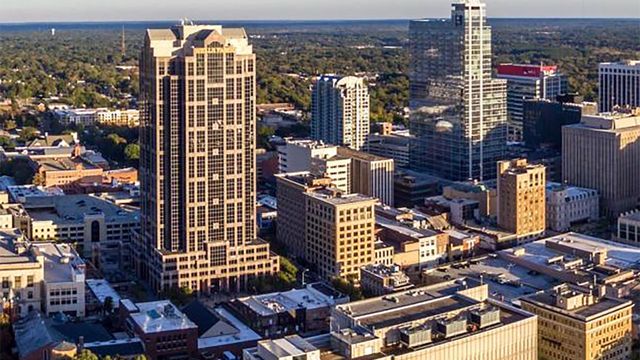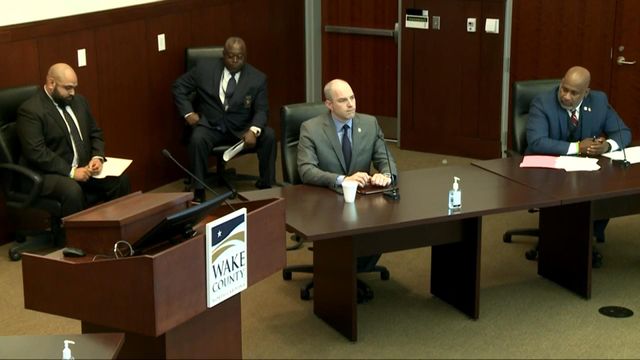Wake joins Triangle neighbors with stay-at-home order
Wake County has become the latest North Carolina locale to order residents to remain at home as much as possible to curb the coronavirus pandemic.
Posted — UpdatedThe Durham County Board of Commissioners is scheduled to meet Friday afternoon and adopt its own stay-at-home order.
"It is clear that more active measures are necessary to reduce the spread of COVID-19 that would place tremendous stress on our health care system and to protect our most vulnerable citizens," said Greg Ford, chairman of the Wake County Board of Commissioners.
Ford said the move wasn't taken lightly. Some people said county leaders should have acted earlier, while others said they were rushing into it, he noted.
"These were not easy calls, but when you're talking about the public health, the default answer was easy in the end," Ford said. "We are all united across the county. This is necessary."
"The damage that this virus is doing to us and to our economy will be minimized by taking action today," he added.
County Manager David Ellis said Wake County has gone from one case of COVID-19, the illness associated with the coronavirus, to 100 in about three weeks, and the numbers will continue to grow in the coming weeks.
Ellis cited the rapid expansion of coronavirus cases that has overwhelmed New York's health care infrastructure in recent weeks and then noted that only 30 to 40 percent of the 1,700 hospital beds in Wake County are available to handle any COVID-19 surge locally.
"If you do some basic math, you see we could quickly run out of beds if we saw the same type of exponential growth [of cases] that is occurring in other communities," he said. "The more [other] places limited contact between residents, and the earlier they did it, the slower the virus spread."
What Wake County's stay at home order means
- Gatherings larger than an immediate family are banned, including parties, social clubs, religious services and other meetings. Churches can stream services online.
- People can leave home to shop for groceries, seek medical help, get a prescription filled, pick up takeout meals from restaurants or visit family members.
- Outdoor exercise with immediate family members is allowed, but people are urged to maintain distance among themselves.
- Essential services that can continue to operate include health care providers, law enforcement, farms, construction, gas stations, banks, shipping, transportation, laundry services, hotels and care for children, the elderly, disabled and homeless, among others.
- Non-essential businesses and retail operations must close.
"It is essential that things keep moving as they have been. The construction industry provides critical services for public safety and welfare,” said Dave Simpson, president and chief executive of Carolinas Associated General Contractors.
"Most of the businesses are struggling now," Davis said. "I know the federal government and the state government are doing everything they can, but when you have mortgages to pay and power bills to pay, and then on top of it, your rent for your business, we are going to lose a lot of people. A lot of businesses will not be here when this is over.”
"It is a skeleton crew of two right now trying to keep the doors open brewing beer,” Eckhardt said, noting the virus has halted bar sales but not sales to retail outlets or pick-up orders.
"It is keeping us afloat so that we can live to serve you another beer on another day," he said.
The North Carolina Chamber of Commerce has urged officials not to issue stay-at-home orders, but Adrienne Cole, president and chief executive of the Greater Raleigh Chamber of Commerce, said her organization backs the moves made by Wake County.
"We recognize the need for this action to avoid overwhelming area hospitals and health care workers and to protect the most vulnerable in our community," Cole said in a statement. "We also recognize the real hardship this is creating for area businesses and employees, as well as the impact it is having on our economy and livelihoods."
Wake County Sheriff Gerald Baker said his deputies will ask people "very kindly, very politely to come into compliance." He said enforcement wouldn't be aggressive.
Related Topics
• Credits
Copyright 2024 by Capitol Broadcasting Company. All rights reserved. This material may not be published, broadcast, rewritten or redistributed.






